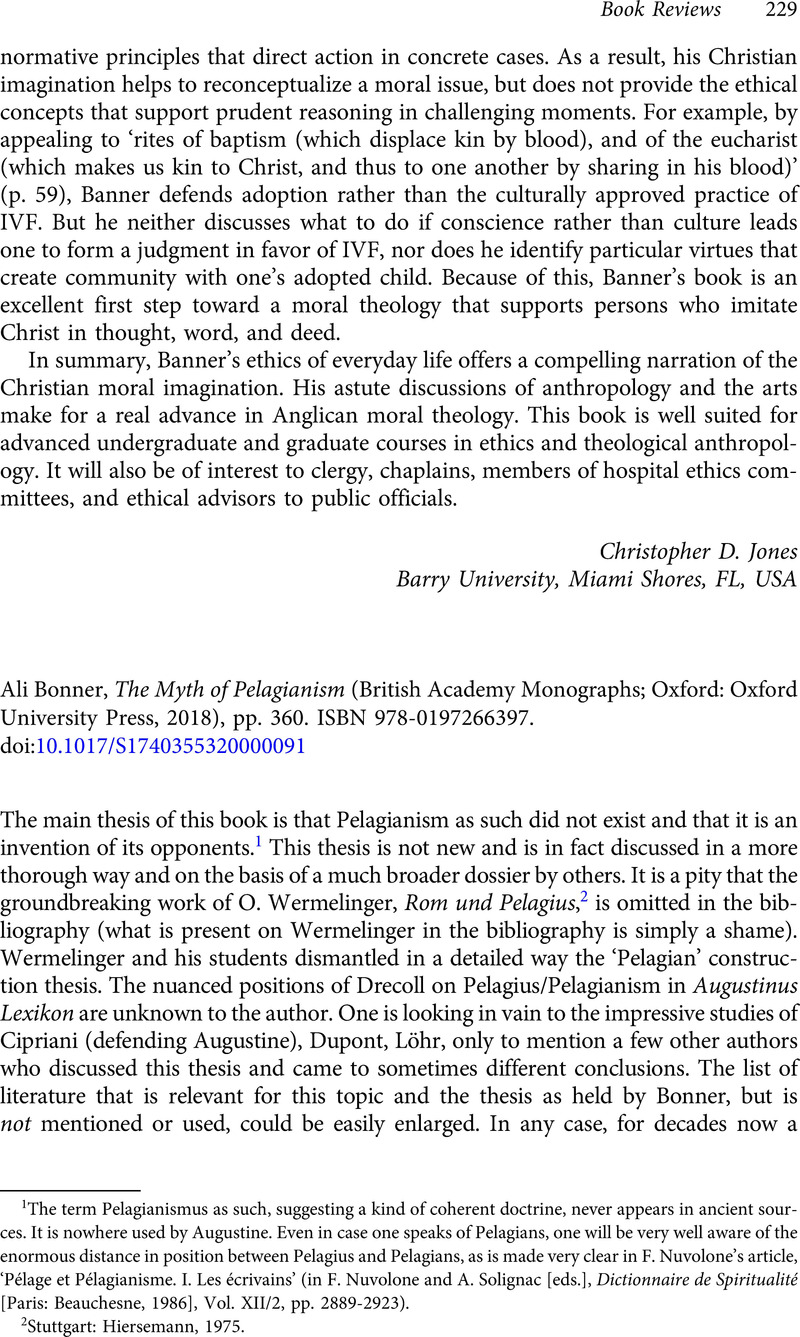No CrossRef data available.
Published online by Cambridge University Press: 20 April 2020

1 The term Pelagianismus as such, suggesting a kind of coherent doctrine, never appears in ancient sources. It is nowhere used by Augustine. Even in case one speaks of Pelagians, one will be very well aware of the enormous distance in position between Pelagius and Pelagians, as is made very clear in F. Nuvolone’s article, ‘Pélage et Pélagianisme. I. Les écrivains’ (in F. Nuvolone and A. Solignac [eds.], Dictionnaire de Spiritualité [Paris: Beauchesne, 1986], Vol. XII/2, pp. 2889-2923).
2 Stuttgart: Hiersemann, 1975Google Scholar.
3 Berlin: De Gruyter, 1999.
4 P.J. van Egmond (‘A Confession without Pretence: Text and Context of Pelagius’ Defence of 417 ad’, doctoral dissertation presented at the Vrije Universiteit Amsterdam in 2013) makes convincingly clear how much the study of manuscripts can contribute to a better understanding of texts in contexts.